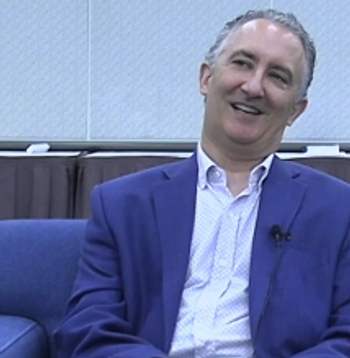
- Psychiatric Times Vol 26 No 9
- Volume 26
- Issue 9
From Our Readers
I found the American Psychiatric Association’s response (“Setting the Record Straight”) to the commentary by Allen Frances, MD, (“A Warning Sign on the Road to DSM-V”) outlining concerns about the DSM-V to be an embarrassing black mark against the association.* As president of an organization supposedly devoted to scientific objectivity, Dr Alan Schatzberg’s (lead author of the response) ad hominem attack and use of unprovable innuendos to discredit Dr Frances reflects an approach I want nothing to do with.
A Black Mark
I found the American Psychiatric Association’s response (“Setting the Record Straight”) to the commentary by Allen Frances, MD, (“A Warning Sign on the Road to DSM-V”) outlining concerns about the DSM-V to be an embarrassing black mark against the association.* As president of an organization supposedly devoted to scientific objectivity, Dr Alan Schatzberg’s (lead author of the response) ad hominem attack and use of unprovable innuendos to discredit Dr Frances reflects an approach I want nothing to do with.
If Dr Schatzberg and his coauthors need an example of a professional, objective, and scientific response to Dr Frances, they should refer to the commentary by William T. Carpenter, MD, “Criticism vs Fact” (
I can only assume that as president of the APA, Dr Schatzberg represents the mind-set of our organization. If that is the case, the APA is an organization with which I take no pride in my affiliation.
Stephen Rosenblum, MD
George Washington University School of Medicine
Life Fellow, American Psychiatric Association
A Dying Art
Kudos to Psychiatric Times for putting
I have been in practice 58 years and, at 88, am still reaping the rewards of providing psychotherapy. And I am vicariously enjoying watching the fine work being done by several men whom I trained as residents many years ago. I do believe the public is gradually understanding that as efficacious as medication is, for many people psychotherapy is essential.
Barbara Young, MD
Baltimore, Maryland
An Approved Treatment
I read the article by W. Clay Jackson, MD, DipTh, “Treatment-Resistant Depression: Primary Care Experience and Nonpharmacological Treatment Strategies” in a May 2009 supplement to Psychiatric Times (page 8), and want to point out an inaccuracy. The statement is made that repetitive transcranial magnetic stimulation (rTMS) “should be considered an investigational therapy and has not yet received FDA approval as a treatment for depression.” In fact, the FDA approved this form of treatment in October 2008. Since January of this year at our center, we have successfully treated 4 out of 4 patients with treatment-resistant depression to the point of full remission using the NeuroStar TMS device approved by the FDA.
Irwin I. Rosenfeld, MD
Laguna Hills, California
Articles in this issue
over 16 years ago
Primary Care Bonus Could Give Psychiatrists Boostover 16 years ago
Why You Cannot Believe Your Eyesover 16 years ago
Deconstructing the “Med Check”over 16 years ago
The Teenaged Brain: Part 2over 16 years ago
Risk Management for the Supervising Psychiatristover 16 years ago
Autumn Equinoxover 16 years ago
Poetry of the Times Is 10!over 16 years ago
Poets on Prozac: Mental Illness, Treatment, and the Creative Processover 16 years ago
Psychiatrist on the Road: Encounters in Healing and HealthcareNewsletter
Receive trusted psychiatric news, expert analysis, and clinical insights — subscribe today to support your practice and your patients.






